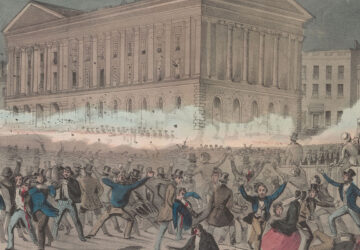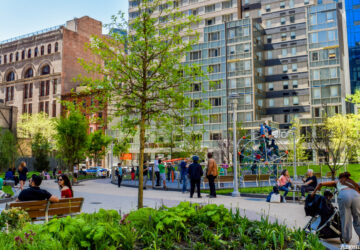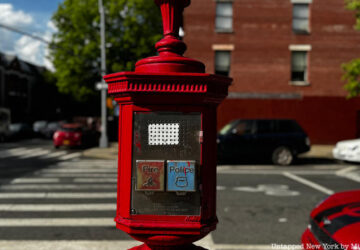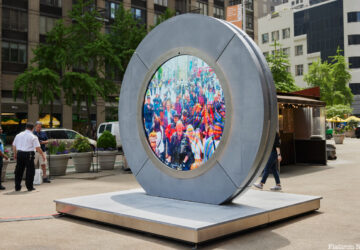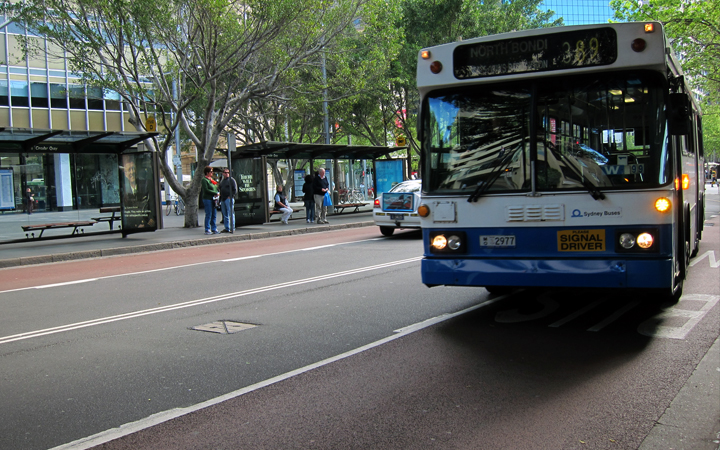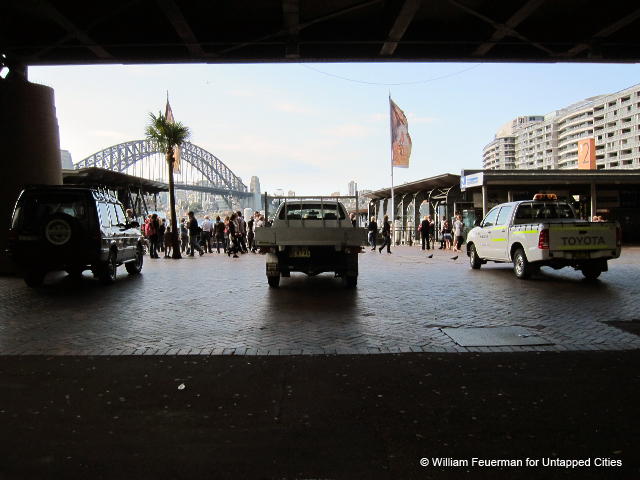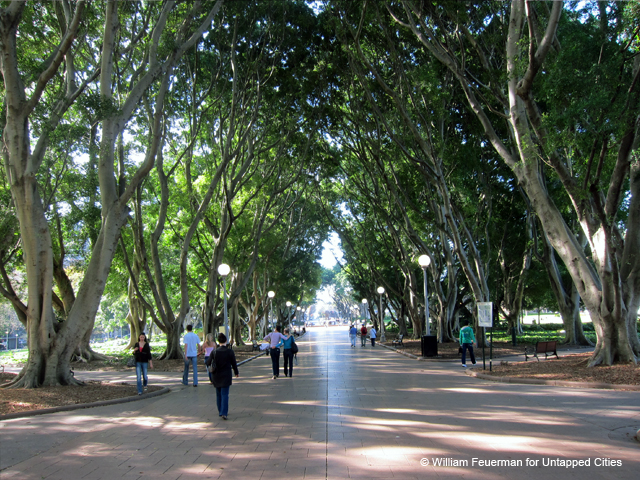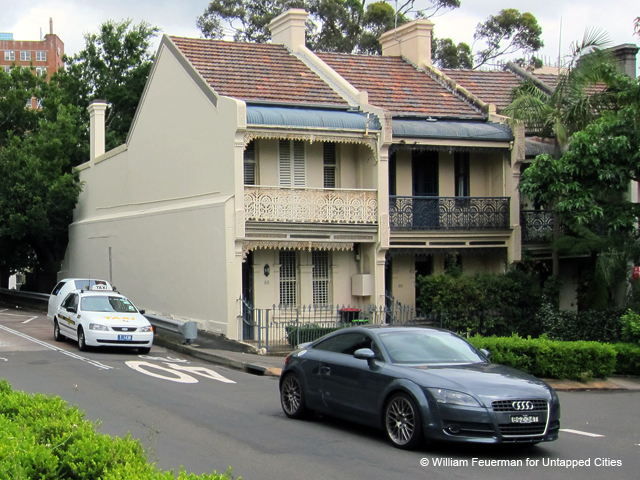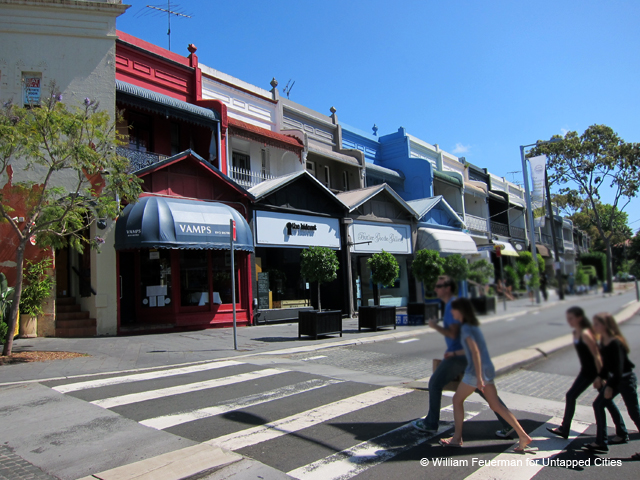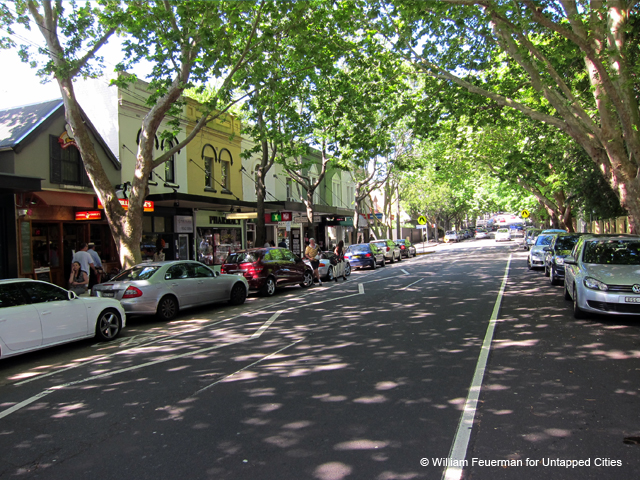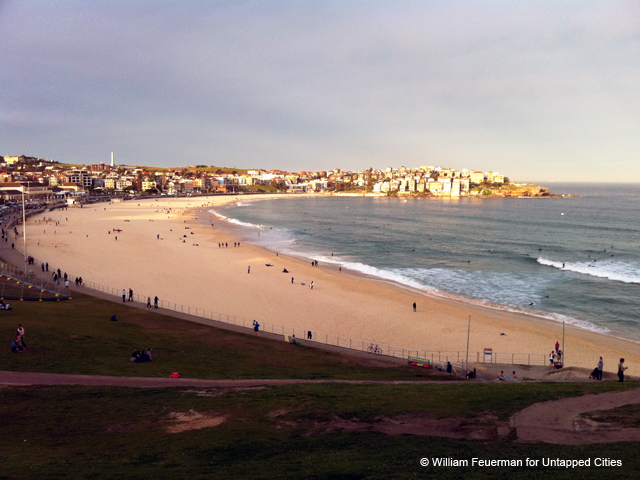The 389 Bus Route
The idea of taking a bus automatically induces stress. In New York, the bus involves patience (which is not the typical trait of a New Yorker) as it takes twice as much time, if not more, than other transportation systems like the Subway or a cab or sometimes even walking. Stopping on every other street corner, the city traffic, the fact that it is in the only ADA accessible transportation system in the city, are all factors that slow NYC buses down. So even with this existing bus stereotype, I have been impressed with Sydney’s bus system.
Dominating Sydney’s narrow village-scaled streets, typically taking up at least one and a quarter lanes, the bus claims its territory, almost pompous in attitude, flaunting its power. As a car driver, buses are intrusive and frankly annoying (a car must give way to a bus) but as a rider they are direct, efficient and fairly reliable, assisted in part by the red-marked bus express lanes scattered through the city.
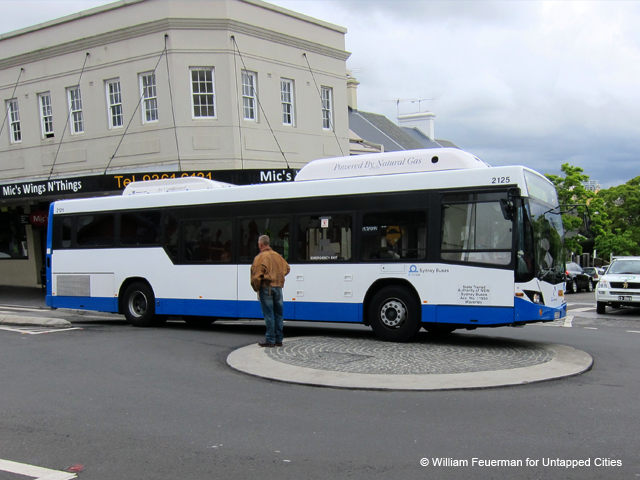 The 389 Driving Over a Roundabout
The 389 Driving Over a Roundabout
Besides walking, driving and cycling, buses are a common mode of public transportation here. Sydney does have train and ferry systems however given the city’s sprawling suburban nature, the train is limited in its destinations and ferries tend to cater to exclusive waterfront locations (which are great for exploration). With more than 290 routes that tangle throughout the city and beyond, Sydney Buses get you from A to Z while also operating as a transporter to some of Sydney’s greatest destinations.
One can take a bus to the furthest tip of Sydney’s north in a little more than an hour and literally stand at the end of the world, where sandstone cliffs drop into the turquoise ocean breaks as dolphins flounder along the edges and tropical birds of all colors surround you. I am not exaggerating, just hop on the L90 from Central Station to Palm Beach and see for yourself.
A simple bus ride can become a Sydney tour and my local bus, the 389, does just that. Riding the 389 provides much to uncover and discover-a journey from city to surf, linking Sydney’s Circular Quay (pronounced key), the location of the Opera House and Harbour Bridge, to one of Sydney’s most popular beaches, Bondi.
The 389 presents a microcosm of the city itself. It represents Sydney’s two sides, the city and the beach; (sub)urban density juxtaposed against a magnificent natural landscape. With great weather year round, the coastal beaches which stretch across the city have become Sydney’s playground. The beach is a part of everyday life. It’s a city where a typical morning begins with a swim in the ocean before a day of work or a 6am boot camp on the beach followed by a dip in the water. A ride on the 389 bus bridges some of Sydney’s greatest assets; a seven kilometer trajectory that passes through a range of landmarks and affluent neighborhoods.
The ride begins at the eastern end of Circular Quay, just next to the Opera House promenade. A quick pass through the Central Business District (CBD) offers a glance at a couple of architectural interests including Aurora Place by Renzo Piano and Deutsche Bank Place by Norman Foster, followed by Martin Place, a pedestrian plaza serving as a heart to the CBD. The bus then takes a turn riding alongside the edges of Hyde Park.
Hyde Park defines the CBD’s eastern edge, acting as a gateway to the Eastern Suburbs. Take a stroll through its amazing fig tree-lined pathways. Sit down and watch the wildlife interact with the landscape: Ibis’ picking through trashcans, Cockatoos screeching as tourists snap photos, Magpies hovering low protecting their nests. Grand fountains and manicured gardens make it a favorite destination for Sydneysiders looking for that quick escape from the city.
Next stop is Darlinghurst but first a quick drive down William Street, passed grand sandstone buildings including St. Mary’s Cathedral and the Australian Museum (a natural history museum). The bus turns into Darlinghurst’s steep sloped streets and the scale instantly changes. The 389 weaves through Stanley Street’s café-lined sidewalk, passed multicolored cottage-style homes and along the edges of Taylor Square and Oxford Street (just blocks from Surry Hills). The bus descends down this constantly changing topography passing by the old Darlinghurst Gaol (that is how jail is spelled in this hemisphere), now the National Art School, and Darlinghurst Road and Victoria Street both overflowing with cafes and restaurants. Stop here to explore Kings Cross and Potts Point.
As the 389 progresses into Paddington, it crosses the Cutler Footway, a bridge that hovers above a dense residential neighborhood. Constructed in the 40’s as a tram passageway (a transportation system that has mostly disappeared from the Sydney street), the bridge is now paved for pedestrian and vehicular use, allowing visual access, a “Rear Window” effect, into the back yards and windows of the residences below. Definitely a stop for the architect/urban enthusiast, as you drift above the city.
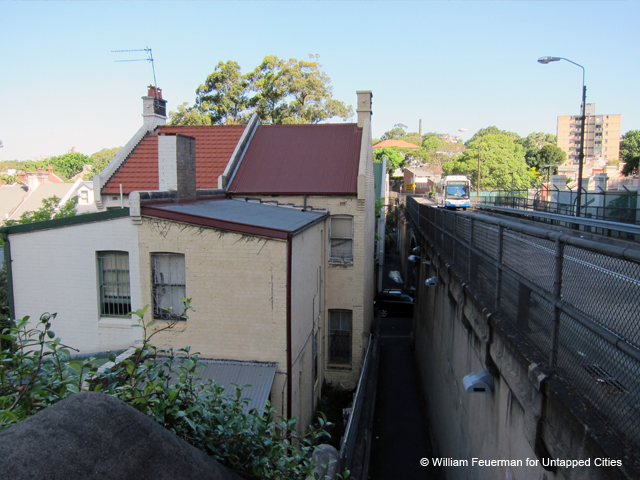 The Cutler Footway, Paddington
The Cutler Footway, Paddington
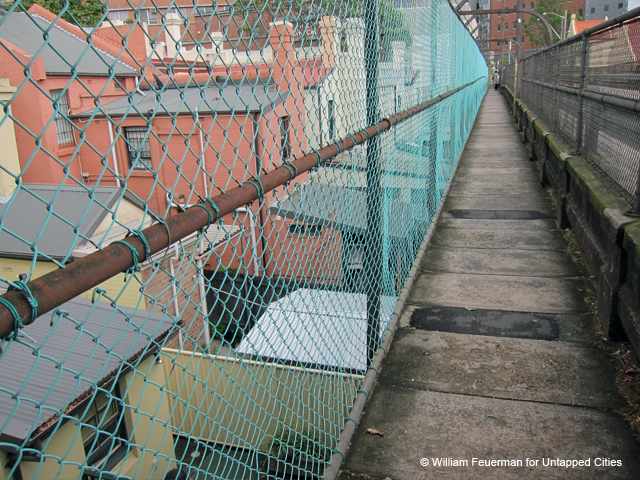 The Cutler Footway, Paddington
The Cutler Footway, Paddington
The bus awkwardly moves through the meandering and extremely narrow backstreets of Paddington passing the colorful cast iron terrace houses (one of Sydney’s most common urban dwelling) that define Paddington’s charming character.
A stop at Five Ways can fulfill a hungry appetite with its cafes, bars and shops. This intersection of five streets becomes an activated pocket of space in the midst of a predominantly residential neighborhood. Of course, you are just blocks away from Oxford Street’s shopping and a diverse range of some of the city’s best galleries and boutique stores.
Following Paddington, we arrive in Woollahra, one of the priciest zip codes in Sydney. A canopy of trees covers Queen Street, home to cafes and gourmet shops such as Victor Churchill, the most amazing butcher shop I have ever experienced and a staple of Woollahra since 1876.
After all this excitement you can take a quick snooze as the bus ascends and descends the hilly and windy streets of Bondi Junction. No need to stop, unless there is a need for a mall or a massage. Bondi Junction is home to Sydney’s mega Westfield Mall which dominates the neighborhood.
As the 389 approaches Bondi Beach the energy begins to escalate. Beautiful sun-kissed bodies abound, surfboards in tow. Lively cafes, restaurant and bars make Bondi a bustling neighborhood. There is no other place you can be but Australia. The bus pulls to the stop at the northern end of the beach and 1km of perfection is presented (and I am not really even a beach lover).
On its far south side, at the location of the famous Bondi Icebergs and its breathtaking pool which almost dissolves into the ocean water, begins the Bondi to Bronte Coastwalk, a spectacular path along the sandstone cliffs. Walk up flights of stairs carved into the stone, down pathways framed by the greenery, while taking in the sea breeze and sounds of crashing waves.
Within the span of 40 minutes, one can experience the unique mix that Sydney has to offer. A true escape from the city (or to the city depending on which direction you are heading) in just 7 kilometers. And this is just one of the many routes you can take! Whether you live in Sydney or are just visiting, you can make the bus a day time activity. For those far away you can take a virtual ride in this three part series of videos captured by a Sydney bus driver, here.
 Sunset on the Bondi to Bronte Coastwalk
Sunset on the Bondi to Bronte Coastwalk
The thought of a bus no longer induces stress”¦
William Feuerman is a New Yorker (via Los Angeles and San Francisco) who is currently living in Sydney, Australia. He is the principal of Office Feuerman, a Sydney based design office, and is faculty at the University of Technology Sydney (UTS). You can follow him on twitter @OfficeFeuerman.
